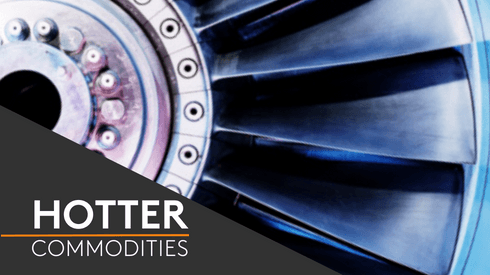The Rare Earth Magnet Production Tax Credit Act would provide a $20-per-kilogram production tax credit for magnets that are manufactured in the US, and it would increase the credit to $30 per kg for magnets manufactured in the US whose components are produced, recycled or reclaimed domestically.
Rare earth magnets are essential for the world’s net-zero transition through their use in the engines of electric vehicles and in offshore wind turbines. They also have important defense applications.
China produces more than 80% of the world’s permanent rare earth magnets. The only other large producer is Japan, which has a highly developed magnet sector supplying its electronics and automotive industries.
New rare earth magnet projects in the US
Neodymium iron boron (NdFeB) rare earth magnets have not been commercially manufactured in the US in large quantities for decades, but there are now two large projects under development.
Last April, MP Materials, which owns and operates the Mountain Pass light rare earth mine in California, began construction of a large sintered NdFeB magnet plant in Fort Worth, Texas. First-phase production capacity will be 1,000 tonnes per year of NdFeB magnets.
MP Materials chairman and chief executive officer James Litinsky welcomed the proposed legislation, describing it as a “crucial step towards leveling the competitive playing field.”
The second large US project is being developed by E-Vac Magnetics, the US subsidiary of German magnet manufacturer VAC Group, which this week announced plans to build a magnet plant in Sumter County, South Carolina.
US carmaker General Motors has concluded binding long-term supply deals with both projects.
MP Materials produced 42,499 tonnes of rare earth oxides contained in concentrate at Mountain Pass last year, and it has started to produce separated rare earth oxides there.
“Mining and processing rare earths domestically is important, but that alone still leaves our supply chain vulnerable,” Litinsky said.
“American industry must convert these essential materials into the permanent magnets that are utilized in components across our economy, including for national security applications,” he added.
Earlier this week, the US House of Representatives’ Select Committee on Strategic Competition between the US and Chinese Communist Party released a report containing recommendations for supporting supply chain resiliency, including the enactment of the Rare Earth Magnet Manufacturing Production Tax Credit Act.
Discover our rare earths prices and insights to stay ahead in this volatile market
Find out more about Fastmarkets’ rare earths prices and insights here.





